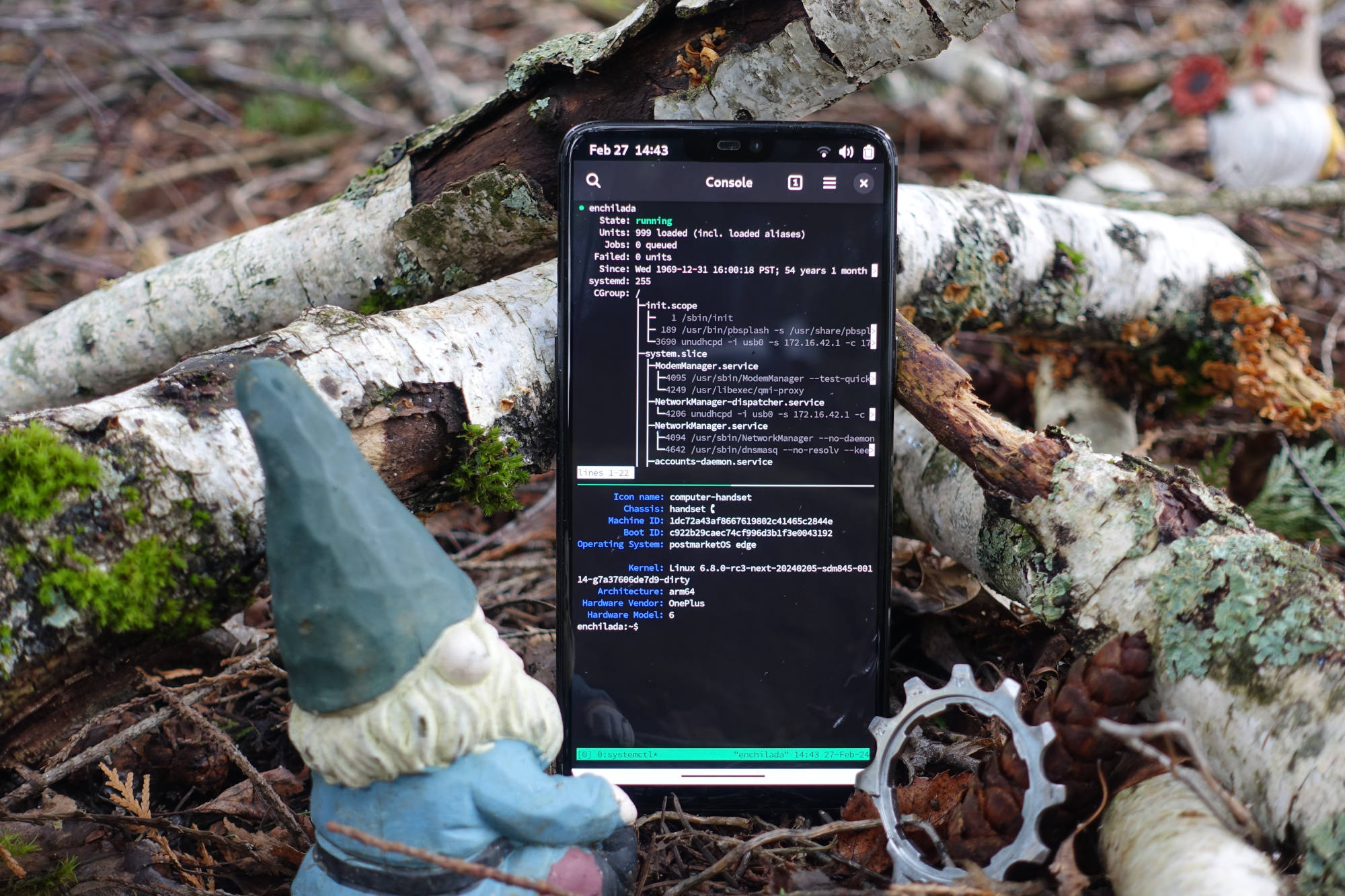How to install Linux on a dead badger (written in 2004, might not work with modern distributions)
Arthur Besse
cultural reviewer and dabbler in stylistic premonitions
- 14 Posts
- 126 Comments

 2·21 days ago
2·21 days agoin the computing context, “lock-in” is shorthand for vendor lock-in.

 2·21 days ago
2·21 days agoHow exactly do they hope to lock devs in github??? That’s absurd, there’s no way they can achieve that. I can always take my projects elsewhere and there’s nothing they can do to stop me.
I can’t tell if you’re joking? If not, what do you think “lock-in” actually means?
It doesn’t mean that it is impossible to leave, it means that there is substantial switching cost. And, that is certainly the case for github-hosted projects: all active contributors need to make a new account somewhere else, issues and discussions need to be migrated, CI workflows typically need to be rewritten, and good luck finding something that gives as much free compute for CI as github does. Yes, it’s easy to mirror a git repo onto another service, but github is much much more than just git repo hosting and each of their features have their own switching cost.
Also, OP actually said “lock devs in” rather than “lock projects in” - I actually am forced to have a github account if i want to contribute to projects which refuse to move their issues off of it 😢 … and the difficulty in creating new accounts anonymously these days prevents me from contributing to several things (lemmy, for instance) which i otherwise would.

 2·29 days ago
2·29 days agoCan someone tell me what vibe coding is?
a term coined 6 months ago for writing software using an LLM https://en.wikipedia.org/wiki/Vibe_coding
ADB slightly predated (and is arguably technically superior to) the PS/2 mouse and keyboard interfaces, but Apple patented it and the only companies that licensed it were those making Mac peripherals.
edit: i forgot, NeXT also used it.
With the Mac SE and II, the switched to ADB, which looked like a PS/2 port, but you could daisy chain your mouse, keyboard, and other inputs like tablets or joysticks all into one jack in the back of the computer.
The port looks similar - both are mini-DIN - but ADB has four pins while PS/2 has six.
ADB was first introduced in 1986 on the Apple IIgs, and later was used in all Macs from the SE until the iMac. For the first few years there were two ADB ports, but in 1990 (maybe starting with the Mac IIsi?) they reduced it to one and started shipping keyboards with ports to daisy chain the mouse from.
It is now official. Netcraft has confirmed: Distrowatch is dying.
One more crippling bombshell hit the already beleaguered Distrowatch community […]

 22·1 month ago
22·1 month ago“spoke out against” is an understatement:
- https://en.wikipedia.org/wiki/Metallica_v._Napster,_Inc
- https://en.wikipedia.org/wiki/Dr._Dre#Copyright_lawsuits
…besides contributing to the eventual shut down of napster, Metallica first compelled it to ban hundreds of thousands of their fans - who’s usernames they delivered to them. Lars Ulrich responded to the backlash by saying “If you’d stop being a Metallica fan because I won’t give you my music for free, then fuck you. I don’t want you to be a Metallica fan.”
There are several ways to; afaik waypipe is the best one.

 11·3 months ago
11·3 months agoyou can still use OpenRC instead if you want, and sxmo will continue to do so by default.
you can read here about why they added systemd.

 5·3 months ago
5·3 months agoI’m planning on revitalizing and bringing this old Itautec to the 21st century
I think it was born in the 21st century? From this it looks like the first Celeron M was in 2004, and the first at that clockspeed was 2005.
Also, 2GB of RAM is plenty for many purposes - that’s more than any Raspberry Pi before the Pi 4 had!

 93·4 months ago
93·4 months agoalso “you may not remove or obscure any functionality in the software related to payment to the Licensor in any copy you distribute to others.” 🤡
FUTO’s license meets neither the free software definition nor the open source definition.

 511·4 months ago
511·4 months ago

 9·4 months ago
9·4 months agoit’s among the many OSes you can run in an emulator in your web browser at https://copy.sh/v86/
sometimes a footprint represents humanity
sometimes, but in GNOME’s case i think it is not intended to be a human foot but rather the foot of a mythological creature (a gnome). note that it has a squashed aspect ratio compared to a human foot, and also has only four toes.
apparently it’s also problematic in some cultures: https://wiki.gnome.org/Engagement/FootAndCulturalIssue
I started to python one and half week ago. So I’m still beginner.
Nice work! Here are a few notes:
The
WeatherAppobject has a mix of attributes with long-term (egself.LOCATIONS) and short-term (egself.city) relevance. Instance attributes introduced in places other than__init__, which makes it non-trivial for a reader to quickly understand what the object contains. And, actually,self.{city,lat,lon}are all only used from theadd_citymethod so they could/should be local variables instead of instance attributes (just remove theself.from them).There seem to maybe be some bugs around when things are lowercase and when not; for example checking
if self.city.lower() in self.LOCATIONSbut then when writing there the non-lowerself.ctiyis used as the key toself.LOCATIONS.The code under
if rep == "1"andelif rep == "2"is mostly duplicated, and there is noelsebranch to cover ifrepis something other than 1 or 2.It looks like the config only persists favorites so far (and not non-favorite cities which the user can add) which isn’t obvious from the user interface.
Passing both
locationandlocationsintoWeatherAPIso that it can look uplocations[location]is unnecessary; it would be clearer to pass in the dict for the specific location. It would also be possible to avoid the need forLOWLOCATIONSby adding a non-lowercasenamekey to the per-location dictionaries that just havelatandlonright now, and then keepingLOCATIONSkeyed by the lowercase names.HTH! happy hacking :)










imo this (.world link) is a better choice